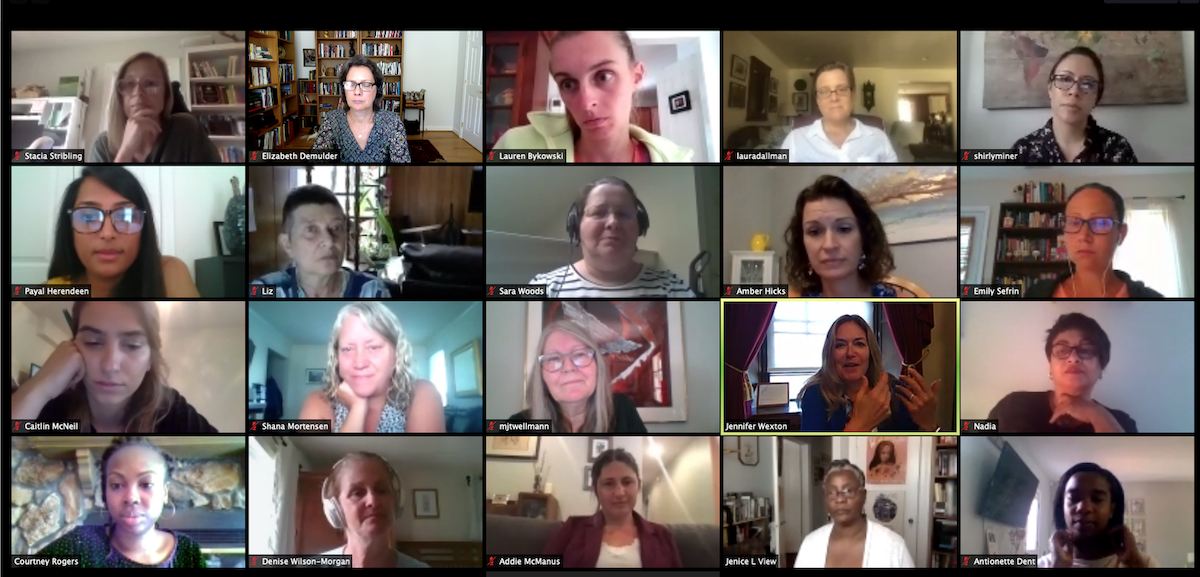Teachers who want professional development focusing on social justice can find it at George Mason University.
The College of Education and Human Development (CEHD) offers a master’s degree program for educators who want to reflect on and transform their teaching practice. The Transformative Teaching cohort program has a curriculum dedicated to critical pedagogy, skill development and support for leadership as anti-racist, civically engaged advocates for teaching and for students.
“Our program is designed to help teachers become leaders in their schools when it comes to anti-racist teaching,” said Elizabeth K. DeMulder, a CEHD professor who coordinates the program with Stacia Stribling, an assistant professor at CEHD. “The need for leadership in this area has been made even more obvious by this past summer’s racial reckoning and by inequities further exposed by the pandemic.”
The program, which began in 2014 in a hybrid format, is now completely online and accepting applications for Fall 2021, with introductory courses starting this summer. The cohorts tend to be small, between 10 and 22 per year. Educators who enroll in the program vary in what they teach, and include K-12 teachers, specialists and other types of instructors.
“Educators find it valuable to learn from each other even though they teach different grade levels and content areas,” said Stribling. “They benefit from collaborating and exchanging thoughts and practices.”
Until this year, DeMulder and Stribling collaboratively ran the program with Jenice L. View, now an associate professor emerita. View, DeMulder, Stibling, and doctoral student Laura L. Dallman all recently co-authored “Antiracist Professional Development for In-Service Teachers: Emerging Research and Opportunities,” a book aimed at helping other institutions and school districts create their own anti-racist professional development programs.
The two-year, 30-credit Transformative Teaching program provides educators with courses and opportunities centered on rethinking the routines and assumptions that shape their teaching, Participants in the program learn about ethical leadership and developing a research-based practice, said View.
“The courses feed off of each other,” said View. “They are seamlessly linked.”
Teachers participating in the program say they’ve learned how to advocate for change in education.
“I’ve learned that I have skills I can use to have a voice in the system,” said Shirley Miner, a Fairfax County School District ESOL teacher who graduates from the program in May. “The program empowers us so that we can learn how to empower our students.”
Shana Mortensen, who will also graduate from the program in May, said she feels “charged” from what she’s learned.
“The program has allowed me to reflect on my own identity and my teaching practice, to think about the ways in which I am giving equitable learning opportunities to all my students,” said Mortensen, who teaches math at Westfield High School in Fairfax County. “I’m more conscious about what I’m doing now, more culturally aware and responsive. I want each of my students to feel that they belong.”

